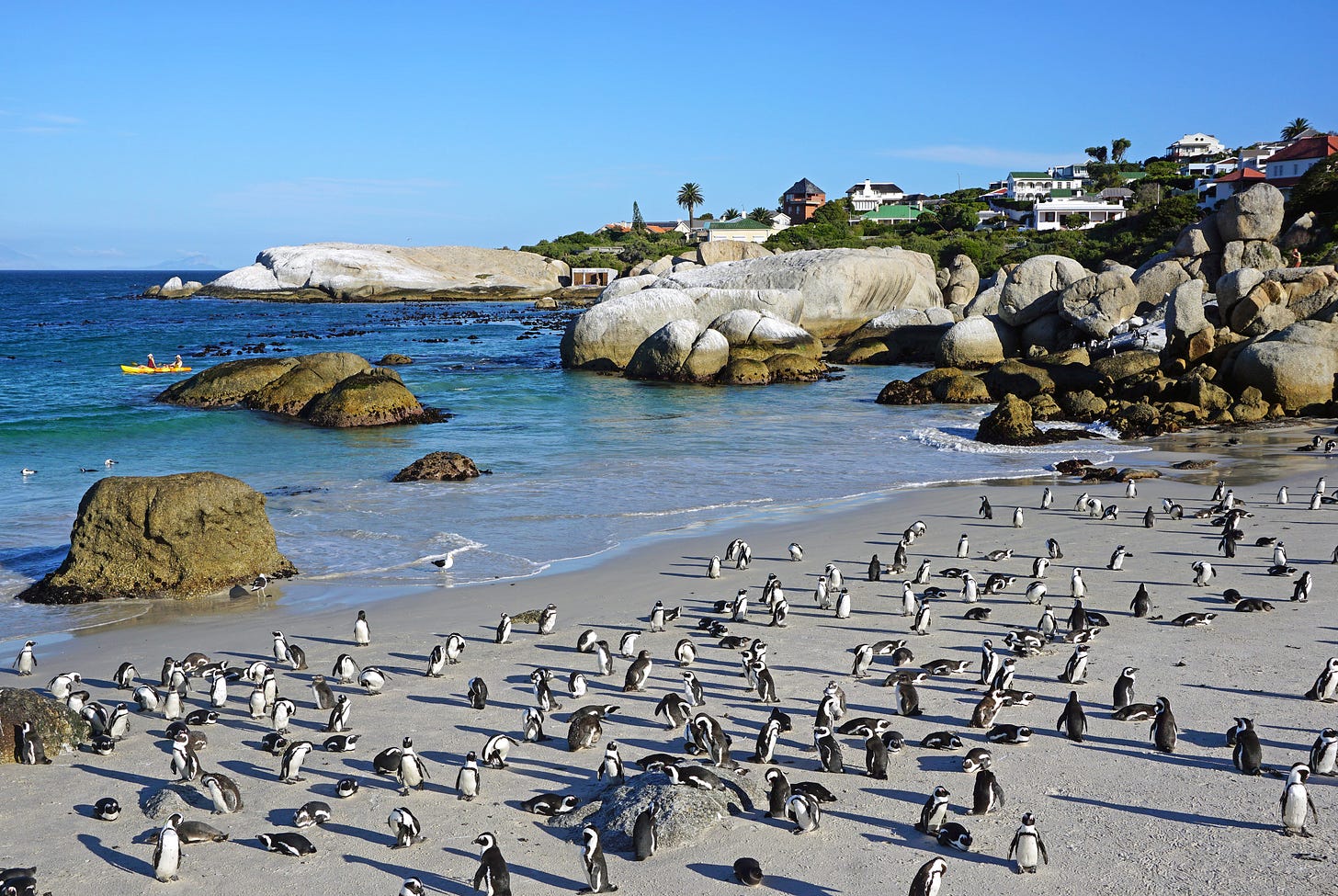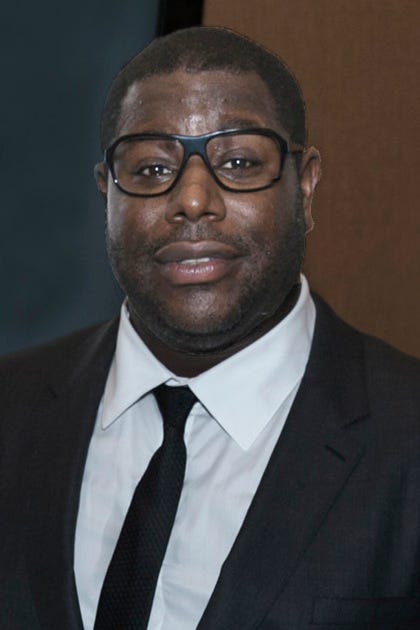🔅 Steve McQueen's Tribute to African Musical Heritage
Niger's Oil-for-Cash Deal with China & Nigeria's Mobile Money Misfire
Photo of the Day
Spotlight Stories
"Bass": Steve McQueen's Immersive Tribute to African Musical Heritage
In the Dia Art Foundation's cavernous basement in New York, British artist and filmmaker Steve McQueen has created a powerful installation that pays homage to the rich musical traditions of Africa and their enduring influence on the diaspora.
"Bass" is a mesmerizing interplay of light, sound, and space that transports visitors on a sensory journey through history, culture, and emotion.
A Collaboration of African Virtuosos:
At the core of it is an extraordinary musical performance that brings together some of the most talented artists from across the African continent and beyond. McQueen assembled a diverse group of musicians, each with deep roots in African musical heritage, including the bass iteslef, to create an improvised soundscape that resonates through the installation space.
Legendary bassist Marcus Miller anchors the ensemble, his electric bass lines weaving a powerful foundation. Jamaican musician Aston Barrett Jr., son of Bob Marley's bassist Aston "Family Man" Barrett, brings a Caribbean flavour to the mix. Malian virtuoso Mamadou Kouyaté, playing the ancient bass ngoni, represents the traditional music of West Africa. Rising star Laura-Simone Martin, an 18-year-old upright bassist from New Jersey, adds a youthful energy to the group, while Grammy-nominated rapper and songwriter Meshell Ndegeocello brings a contemporary edge.
A Journey Through the African Diaspora
As the bass notes reverberate through the stark concrete space, the music takes on a life of its own, evoking the journey of enslaved Africans across the Atlantic and the evolution of their musical heritage in the Americas and the Caribbean. The improvised performance flows seamlessly, creating a sense of timelessness and continuity.
The slowly shifting colors of the LED light boxes overhead add to the immersive experience, casting the space in a spectrum of hues that evoke the changing landscapes and emotions of the diaspora. Visitors find themselves drawn into a meditative state, lost in thought and memory as they contemplate the legacy of African music and its role in shaping global culture.
Ultimately, "Bass" is an invitation to reflect on the deep connections that bind Africa and its diaspora, and to celebrate the power of music as a force for resilience, healing, and unity.
Niger's Oil-for-Cash Deal with China
Niger is gearing up to ship its first barrel of oil this month, thanks to a $400 million commodity-backed loan agreement with China's state-owned CNPC. Although initially Benin said it had blocked exports from landlocked Niger, demanding the country reopen its border to goods and normalise relations, it has provisionally reversed its decision
The Great Oil Pipeline of China
CNPC has already invested $4.6 billion in Niger's petroleum industry, including the construction of a 1,200-mile pipeline that will transport the oil from Niger to neighbouring Benin.
With the increased oil production, Niger's economy is expected to grow by more than 12% this year, making it the fastest-growing in sub-Saharan Africa, according to the World Bank. It seems Niger's military junta, which took power last year, hit the jackpot — one it would readily accept because it could really use a financial lifeline.
S&P Global Commodity Insights predicts that Niger will start shipping 90,000 barrels of oil per day this month, with plans to increase that number to 110,000. That's a lot of black gold flowing from the Sahara to the South China Sea.
Prime Minister Ali Mahaman Lamine Zeine has called China Niger's "great friend," which might also have something to do with the fact that Niger has recently cut ties with its former colonial ruler, France, and long-time ally, the United States.
Nigeria's Mobile Money Misfire: Micro-Entrepreneurs Missing Out on Digital Dough
Nigeria's entrepreneurs are apparently stuck in the stone age, relying on cash and checks while their counterparts in Kenya, Senegal, and Ghana are raking in digital dough using mobile money.
According to a recent survey by GSMA, the global industry group for telecom operators, Nigeria's micro-entrepreneurs are seriously lagging behind when it comes to using mobile money for their businesses. Only 16% of these small business heroes owned a mobile money account in 2022, compared to between 70% and 90% in Kenya, Senegal, and Ghana.
The Awareness Gap
So, what's holding Nigeria's micro-entrepreneurs back? According to GSMA, it all comes down to awareness. While mobile money is practically a household name in the other three countries, many Nigerians are still in the dark about how it works and how it can benefit their businesses.
But fear not, there's a light at the end of the mobile money tunnel. New licensing regimes are enabling telecom giants like MTN and Airtel to offer mobile money services, and awareness is slowly but surely on the rise.
At the end of the day, mobile money is a game-changer for small businesses. It's faster, safer, and more convenient than cash, and it opens up a whole new world of financial possibilities.
Food for Thought
“Where water is the boss, there the land must obey."









